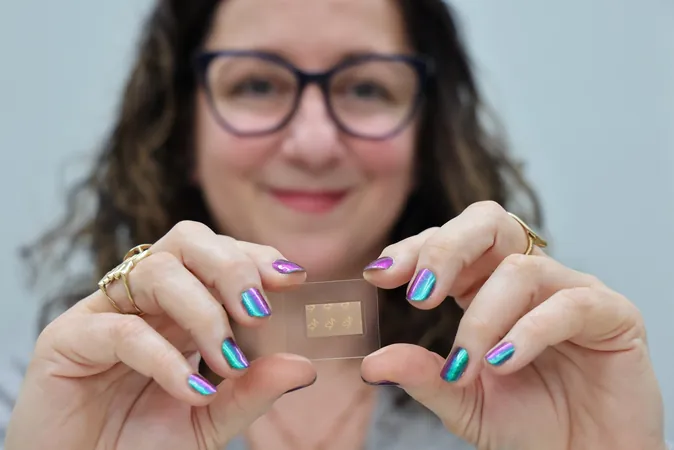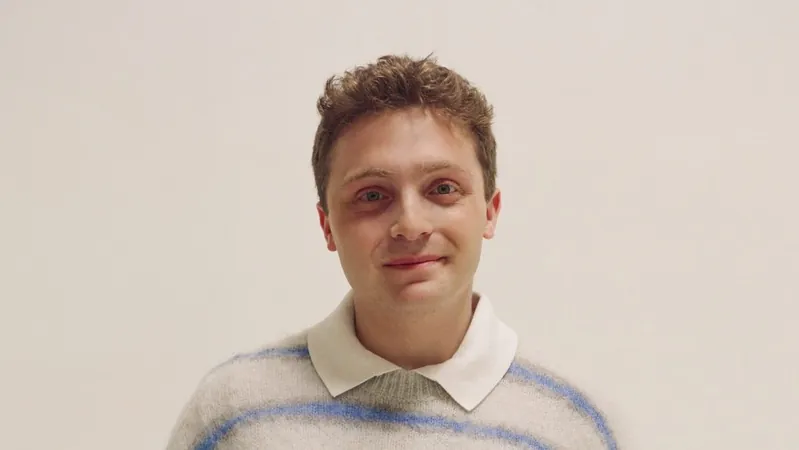
Struggling with Opioid Addiction? Access to Life-Saving Medications in Philadelphia Is Still a Challenge!
2025-04-01
Author: Jia
The Struggle for Access to Opioid Addiction Medications in Philadelphia
In Philadelphia and its surrounding areas, the struggle against opioid addiction continues as patients face significant barriers in accessing medications for treatment. Dr. Maggie Lowenstein, an addiction medicine specialist at Penn Medicine, highlights a stark reality: research shows that only 20% of individuals dealing with opioid use disorder actually receive the medication that could save their lives.
Research Insights from Dr. Lowenstein
Dr. Lowenstein wanted to dig deeper into the accessibility of buprenorphine, one of the three FDA-approved drugs for opioid addiction. Between September 2022 and January 2023, her team conducted a survey where they contacted various treatment programs in Philadelphia, posing as case managers seeking to get a patient into treatment. The results revealed a mixed bag of improvements and ongoing struggles.
Mixed Results in Treatment Program Accessibility
While some treatment programs were able to offer appointments within days—an improvement from previous years—only about 42% could provide immediate access to buprenorphine. What's concerning is that nearly half of the programs were unable to clarify whether counseling was a requirement to obtain the medication. "We really shouldn’t be delaying medication starts. This is a lifesaving treatment that cuts the risk of death in half," Lowenstein stated firmly, echoing sentiments supported by the latest guidelines from the U.S. Department of Health and Human Services.
Outdated Practices vs. Modern Evidence
Research shows that requiring counseling as a precondition for medication access does not enhance treatment efficacy, yet many programs still cling to outdated practices. Dr. Lowenstein pointed out, “The mortality of a person who's had a nonfatal overdose is comparable to someone who's had a heart attack. They need care urgently.”
Consequences of Treatment Hurdles
The hurdles patients face in securing timely treatment can have dire consequences. Lowenstein noted that many individuals encounter unrealistic expectations or requirements that are misaligned with current treatment guidelines, leading to treatment interruptions that place them back in perilous circumstances.
Federal Efforts and Ongoing Challenges
Despite federal efforts to streamline the prescription process for medications addressing opioid addiction, significant gaps in treatment accessibility persist. “Treatment programs need to catch up with modern evidence,” Lowenstein asserted.
Support Systems for Patients
For those looking for help, resources like the CareConnect Warmline have emerged to assist individuals in need. Nicole O'Donnell, a certified recovery specialist at Penn Medicine, explains that many patients have previously received treatment but fell out of care due to circumstances such as missed appointments or incarceration. "It's really become a safety net for those who have accessed treatment and then fall out of it for a week or two, risking a fatal overdose," she noted.
Signs of Hope and Progress
On a more hopeful note, there are signs of progress. Denise Botcheos, the director of behavioral health services at Prevention Point, reported that there's an increased understanding among patients about the treatment process, reducing fears associated with initiating medication. "Now, I feel like there's so much more knowledge out there and people talk to each other," she added.
Conclusion: The Urgent Need for Equitable Access
As Philadelphia continues its battle against opioid addiction, the call for more equitable access to treatment remains urgent. Despite improvements, the fight is far from over—mental health professionals and advocates must collaborate to break down the barriers that keep patients from the lifeline they so desperately need.



 Brasil (PT)
Brasil (PT)
 Canada (EN)
Canada (EN)
 Chile (ES)
Chile (ES)
 Česko (CS)
Česko (CS)
 대한민국 (KO)
대한민국 (KO)
 España (ES)
España (ES)
 France (FR)
France (FR)
 Hong Kong (EN)
Hong Kong (EN)
 Italia (IT)
Italia (IT)
 日本 (JA)
日本 (JA)
 Magyarország (HU)
Magyarország (HU)
 Norge (NO)
Norge (NO)
 Polska (PL)
Polska (PL)
 Schweiz (DE)
Schweiz (DE)
 Singapore (EN)
Singapore (EN)
 Sverige (SV)
Sverige (SV)
 Suomi (FI)
Suomi (FI)
 Türkiye (TR)
Türkiye (TR)
 الإمارات العربية المتحدة (AR)
الإمارات العربية المتحدة (AR)